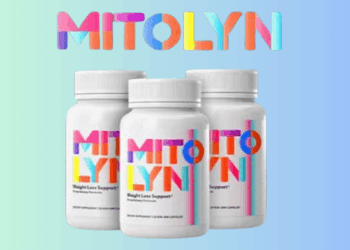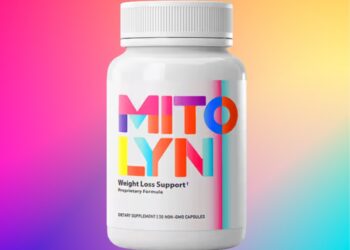Mitolyn Compared to Prescription Weight Loss: A 2025 Analysis
Mitolyn has emerged as a popular natural alternative for individuals seeking significant weight management results. But how does it truly stack up against the power of prescription medications? This definitive analysis provides a clear, evidence-based comparison of Mitolyn and prescription weight loss drugs, examining mechanisms, efficacy, safety, and cost to help you make an informed decision tailored to your health goals.
Understanding the Contenders: Mitolyn vs. Prescription Drugs
Mitolyn is a dietary supplement that leverages a blend of natural ingredients like Green Tea Extract, Glucomannan, and Chromium to support metabolism, appetite control, and fat burning. It operates as a general metabolic aid.
Prescription weight loss drugs, such as Orlistat (Xenical), Phentermine-Topiramate (Qsymia), Semaglutide (Wegovy), and Liraglutide (Saxenda), are pharmaceutical compounds. They require a doctor’s prescription and often work by suppressing appetite centrally in the brain, altering fat absorption in the gut, or mimicking hormones that regulate hunger and satiety.
Head-to-Head Comparison: Efficacy and Speed of Results
When evaluating Mitolyn compared to prescription weight loss options, results vary significantly.
Prescription Medications: Drugs like Semaglutide (Wegovy) show high efficacy in clinical trials. A study published in the New England Journal of Medicine found that participants using Semaglutide achieved an average weight loss of 14.9% of their body weight over 68 weeks. They often produce faster, more dramatic initial results due to their potent action on hunger hormones.
Mitolyn: As a supplement, Mitolyn supports gradual, steady weight loss. Users can expect a supportive boost in metabolism and appetite control, leading to a sustainable calorie deficit. Results are more modest and vary greatly based on individual diet and lifestyle. It functions as an aid within a broader health strategy, much like other supplements we’ve reviewed, such as Java Burn.
Safety Profile and Side Effects: A Critical Difference
This is often the most significant factor for individuals considering Mitolyn.
Prescription Drugs: Carry a risk of more serious side effects. Common issues include nausea, vomiting, diarrhea, constipation, insomnia, increased heart rate, and in rare cases, more severe complications like pancreatitis. They require medical supervision and are not suitable for everyone, especially those with certain heart conditions or a history of eating disorders.
Mitolyn: Comprised of natural ingredients generally recognized as safe (GRAS) by the FDA. Potential side effects are typically mild and may include minor digestive discomfort as your body adjusts. It is considered a lower-risk option but, like all supplements, is not evaluated by the FDA for treating specific diseases. This safety-first approach is similar to that of Hepato Burn, which focuses on gentle, liver-supported wellness.
Cost and Accessibility Analysis
Prescription Weight Loss Drugs: Can be prohibitively expensive, often costing between $800 to $1,300 per month without insurance. Accessibility is tightly controlled; you must see a doctor, receive a formal diagnosis (often with a BMI over 30, or over 27 with a weight-related condition), and navigate insurance prior authorizations.
Mitolyn: Is generally more affordable and accessible, typically ranging from $50 to $70 per bottle. It can be purchased online without a prescription, making it a convenient first step for many. However, it is almost never covered by health insurance plans.
The Role of a Healthcare Provider
A crucial element in the “Mitolyn compared to prescription” debate is the role of a doctor. Prescription options require a diagnosis and ongoing monitoring. A healthcare provider can assess if your weight is impacting your health (e.g., leading to high blood pressure or diabetes) and determine if a pharmaceutical intervention is medically necessary.
Consulting a doctor is recommended before starting any new weight management regimen, including Mitolyn, to ensure it is safe for your individual health status and doesn’t interact with any medications.
Frequently Asked Questions (FAQs)
Q: Can I take Mitolyn with prescription weight loss drugs?
A: It is not recommended to combine them without explicit approval from your doctor. Combining supplements and pharmaceuticals can lead to unknown interactions and increased side effects.
Q: How long does it take to see results with Mitolyn?
A: Results vary. With consistent use alongside dietary changes, some users report noticing effects on appetite within a few weeks, with more significant weight management results appearing after 2-3 months.
Q: Is Mitolyn FDA-approved?
A: No. Mitolyn is a dietary supplement. Unlike prescription drugs, supplements do not require FDA approval before being marketed. The FDA only takes action against supplements that are found to be unsafe or make fraudulent claims.
Final Verdict: Which One is Right For You?
The choice between Mitolyn and prescription drugs isn’t about which is “better,” but which is more appropriate for your individual situation.
-
Choose Prescription Weight Loss Drugs if: You have a significant amount of weight to lose (e.g., a BMI over 30), have obesity-related health conditions (like type 2 diabetes or hypertension), and have not found success with other methods. Your journey will be and should be supervised by a medical professional.
-
Choose Mitolyn if: You are looking for a natural, accessible supplement to support a broader weight management plan that includes diet and lifestyle changes. It is best for those with mild to moderate weight loss goals who prefer to avoid the potential side effects and high cost of prescriptions.
Always consult with your physician to discuss the best and safest path forward for your health.














